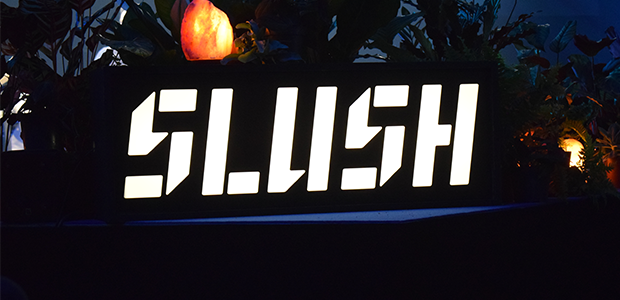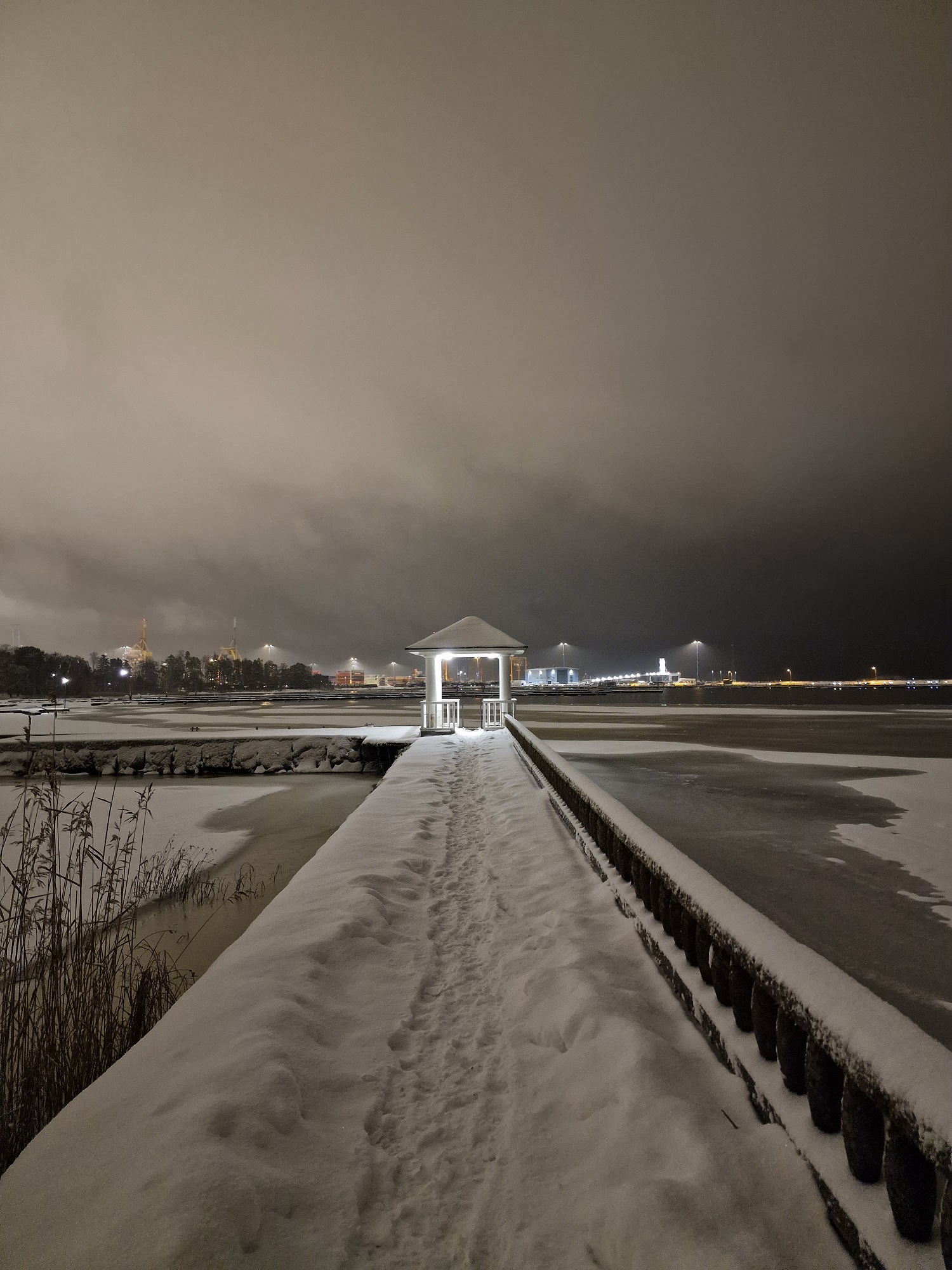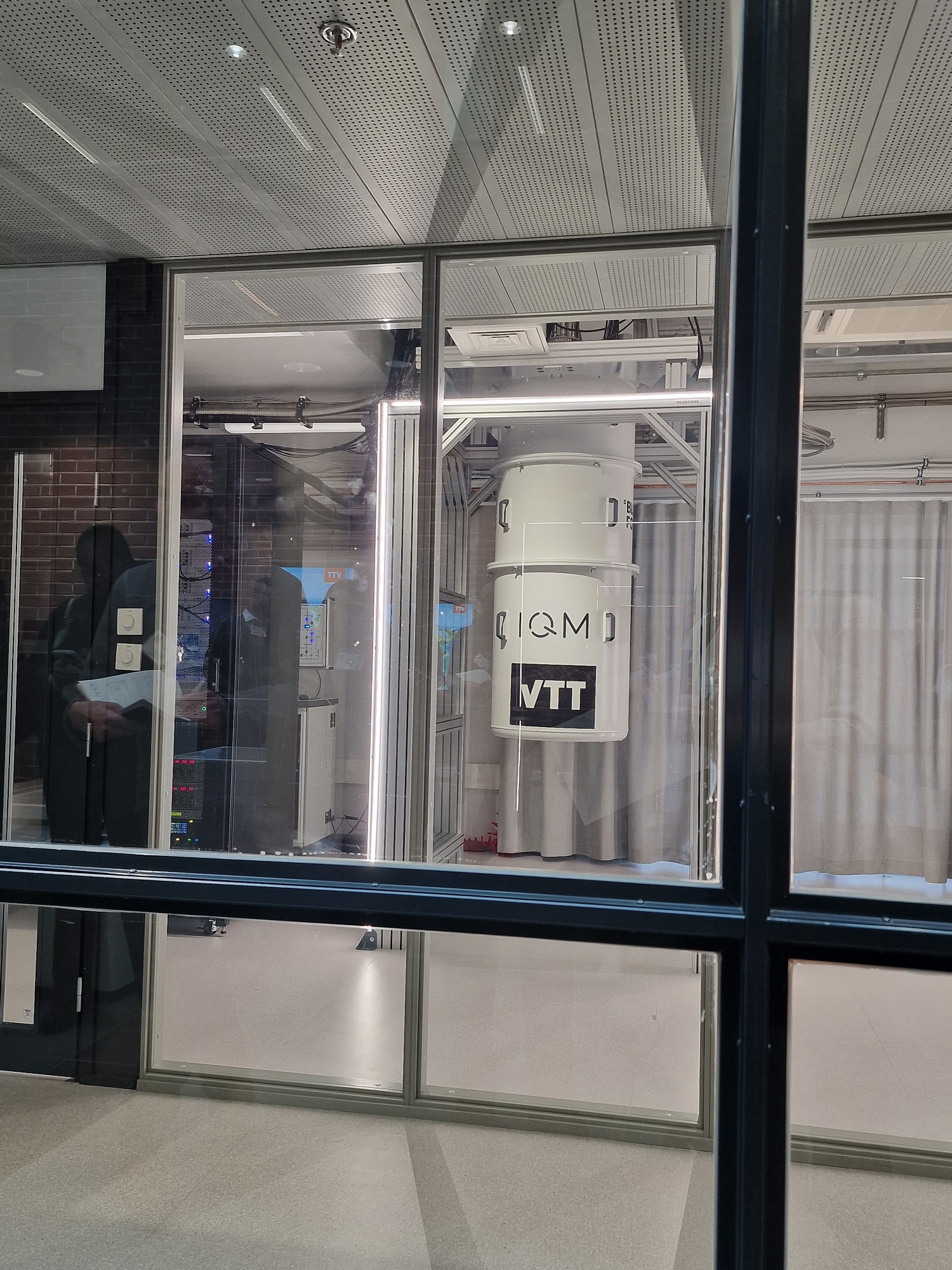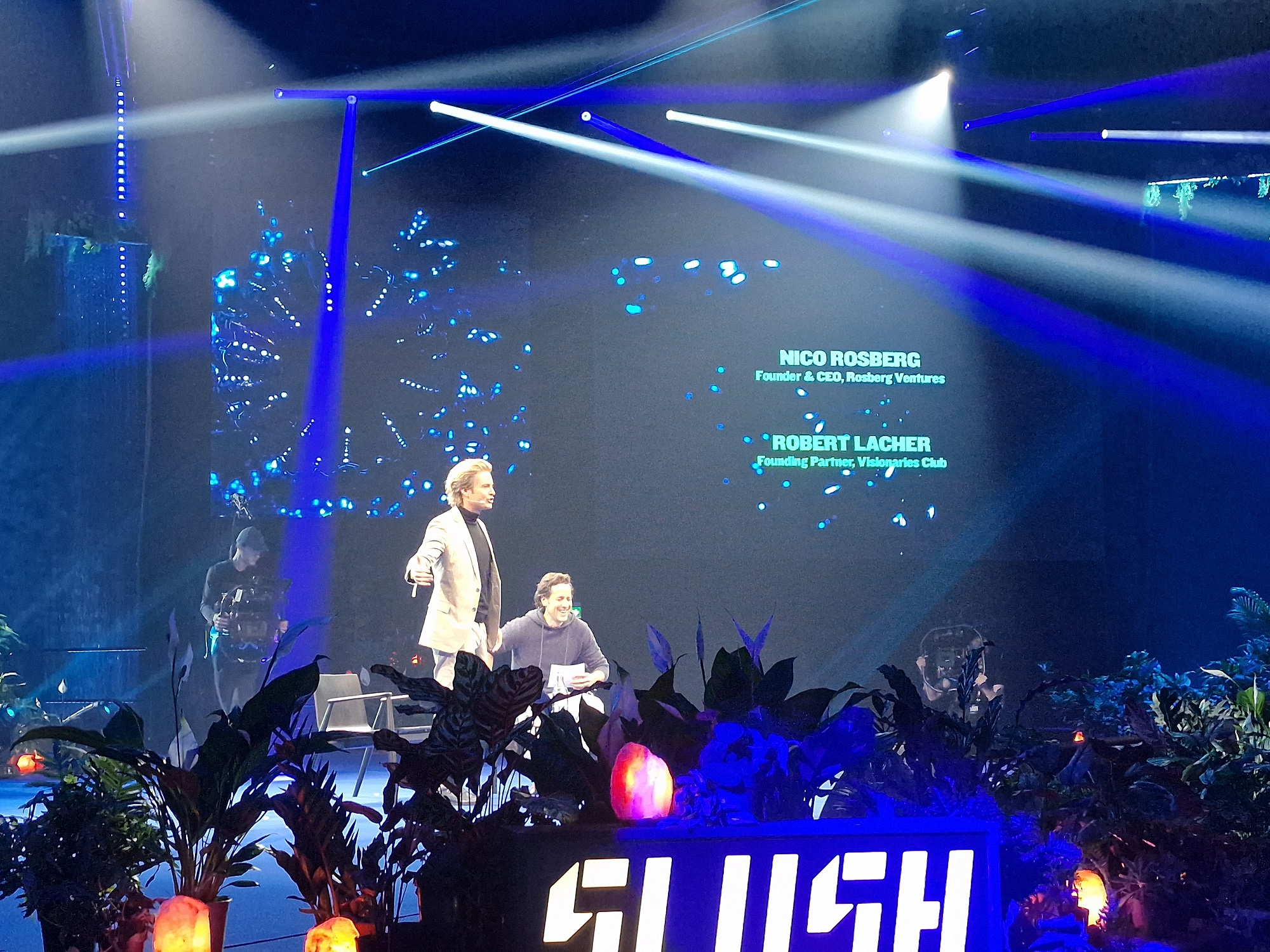
Startups Magazine takes on Slush 2023
Slush is one of the world’s biggest startup and tech events, held annually in Helsinki, Finland. Over the days, Helsinki became a bustling hub of activity, with startups, entrepreneurs, investors, and many more flocking to the beautiful city to attend this event and make connections within the industry.
This year, Slush brought together over 5,000 startup founders and operators, and 3,000 investors to celebrate entrepreneurial grit under the theme ‘Building to Last’. But not only do startup founders and investors want in on the event, alongside all the networking and possible funding opportunities, Slush hosts a fantastic programme featuring speakers to inspire and motivate those in attendance.
 Slush also hosts the annual Slush 100 competition with a prize of €1 million investment from five early-stage funds in Europe: Accel, General Catalyst, Lightspeed Venture Partners, NEA, and Northzone. The startups accepted into the top 20 receive hands-on sessions with company founders and mentoring from experts from the startup ecosystem. This year the lucky winner was Faircado, an AI-powered browser plugin which automatically finds cheaper second-hand alternatives when consumers are shopping online.
Slush also hosts the annual Slush 100 competition with a prize of €1 million investment from five early-stage funds in Europe: Accel, General Catalyst, Lightspeed Venture Partners, NEA, and Northzone. The startups accepted into the top 20 receive hands-on sessions with company founders and mentoring from experts from the startup ecosystem. This year the lucky winner was Faircado, an AI-powered browser plugin which automatically finds cheaper second-hand alternatives when consumers are shopping online.
Startups Magazine’s Deputy Editor, Anna Wood, spent a week in Helsinki to check out the event, as well as experience some Finnish culture!
A deep dive into Finnish tech and culture
The first evening saw me take a deep dive into Finnish tech and the culture.
I heard from Janne Laine, Vice President of Innovations at Aalto University, as he spoke about how important the University is to the tech ecosystem in the city. Aalto University produces around 100 startups that spin out from the University every year, and around 50% of all startups in Finland are spinouts from the University, with most of the funding awarded to Finnish startups going towards these startups. The university makes the business ecosystem more accessible to students that are studying in the technology sector and supports them as they start businesses to ensure they succeed.
Tauno Vähä-Heikkilä, Vice President of Microelectronics at VTT discussed how quantum computing is currently the ‘big thing’ in Finland, and a lot of the research currently being conducted in the research centre focuses on all things quantum. VTT Technical Research Centre of Finland is a state-owned and controlled non-profit company. It is the largest research and technology company and research centre conducting applied research in Finland. Alongside the university, VTT also produces many spinouts from the research that is conducted there. One of these is SemiQon, a startup that I met later on in my trip that is on a mission to realise the promise of quantum computing through powerful, resilient, and cost-effective silicon-based quantum processors.
There were talks from some fantastic and innovative startups and scaleups. Most notably, Sabrina Maniscalo, CEO and Co-Founder of Algorithmiqspoke about developing quantum algorithms to solve the most complex problems in life sciences, focusing on drug discovery, drug design, and molecular structure prediction.
CEO and Co-Founder of Silo AI, Peter Salin, discussed the company and how it is “Europe’s largest private AI lab.” The company partners with industry leaders to build smart device, autonomous vehicles, Industry 4.0, and smart cities.
 Quantrolox CEO and Co-Founder Vishal Chatrath educated me on how Quantrolox’s product, Quantum Edge, automates the tuning and optimisation of superconducting quantum computers. It reduces the time for fundamental experiments such as resonator and qubit spectroscopy to seconds.
Quantrolox CEO and Co-Founder Vishal Chatrath educated me on how Quantrolox’s product, Quantum Edge, automates the tuning and optimisation of superconducting quantum computers. It reduces the time for fundamental experiments such as resonator and qubit spectroscopy to seconds.
Finally, I heard about Varjo. Varjo creates some of the highest-immersion virtual and mixed-reality products on the market for advanced VR users. Its solutions are currently being used to train astronauts, pilots, and nuclear power plant operators, design cars, and conduct pioneering research.
Not only did I get to meet a group of fascinating people, but I also took an ice-dip for the first time, which isn’t as bad as you would think it is, and is actually really refreshing!
Startup Campus Maria 01
On my second day, I paid a visit to the startup Campus Maria 01. Maria 01 is a non-profit combination of an entrepreneurial community and a selection-based campus for tech teams.
Maria 01 is a startup campus by the community for the community. Its mission is to provide the best environment and community for startups to grow. The community of Maria 01 includes over 180 startups in-house, and by the end of 2022, the centre had 1,506 members. In its end-of-year research, it found that over €715 million had been raised in venture capital between 2016-2022 amongst the members. This is also encouraged since 29 local and foreign VCs and investor networks are also members.
Company visits
Next up was a visit to VTT to visit the quantum computer showroom at Micronova. I saw Finland’s first two quantum computers that were developed together by VTT and IQM. Whilst there, a representative from IQM discussed quantum computing in-depth, and showed us different components and the applications that quantum computing can have.

One of the highlights of my trip was a visit to ICEYE. ICEYE delivers persistent monitoring capabilities for any location on Earth. The company owns the world’s largest synthetic-aperture radar constellation, which enables objective, data-driven decisions for its customers in sectors such as insurance, natural catastrophe response and recovery, security, humanitarian relief, maritime monitoring, and finance. Rafal Modrzewski, CEO and Co-Founder of ICEYE commented that the company’s goal is to “improve life on Earth by becoming the global source of truth.” I got the chance to have a look into the top-secret manufacturing process of the satellites, and find out why they use commercially available off-the-shelf components as much as possible, despite the increased risk this can pose.
And last but not least, the last stop of the day was BlueFors! BlueFors is one of the biggest players in manufacturing cryogenic measurement systems, cryocoolers and other cryogenic product lines for quantum technology, fundamental physics research and other industries, such as life sciences and clean energy. The company is a spinout from Aalto University and was founded in 2008. In 2005, Rob Blaauwgeers was hired by the Low Temperature Laboratory (LTL) at Helsinki University of Technology to move and upgrade all of their dilution refrigerator systems. One of the tasks was to construct a versatile, fully automated gas handling system capable of working in combination with all the different dilution refrigerator systems. At the same time, Blaauwgeers started to develop the first cryogen-free dilution refrigerator system for the LTL. In the summer of 2006, the newly developed gas handling system underwent first tests in combination with the first prototype of the cryogen-free (“dry”) dilution refrigerator system. Together with Pieter Vorselman, the pair optimised the automated cryogen-free dilution refrigerator system for reliability and performance. In 2007 the first system was acquired by the NANO group of the LTL and shortly after BlueFors Cryogenics was founded.
Slush time!

Day three was time for Slush! I didn’t know what to expect from the event, I knew that it is one of the biggest startup events in the world, but having never attended before, I went in ready for anything.
I’d heard that the opening talk was one to not miss, so I went along at 10am to be greeted by a trapeze artist performing to techno music whilst strobe lights lit the stage in a green-blue hue. I was amazed, the event started off with a bang and the entire day continued to blow any notions of what I expected the conference to be like.
I listened to an interesting talk with the CEO of Monzo, TS Anil, and Sonali De Rycker, Partner at Accel. This discussion was centred around Anil’s experience coming into the company as CEO when the founder realised he was ready to pass the role onto someone else, when a startup should consider having a CEO that isn’t a founder, and Monzo’s journey from startup to one of the most disruptive forces in the fintech world. 
Nico Rosberg, former Formula One World Champion turned entrepreneur and angel investor, discussed the lessons that he has learned from this transition, how his past career has helped him in this venture, and laid bare the crucial role of competition in propelling innovation.
The last talk of the day was titled ‘Building with OpenAI - ChatGPT, agents and the path towards AGI.’ OpenAI’s Head of Developer Experience, Romain Hunt, talked about the first steps towards helping developers build agent-like experiences within their own applications.
Between talks, I attended meetings and met with a lot of startups that came from all around the globe. The innovations that were on show were mind-blowing, and that really got my creative juices flowing. Find my list of Top 10 Startups at Slush here.
The atmosphere in Messukeskus was electric, and I could truly feel the excitement of everyone in attendance.
A trip I will never forget
I’d like to express my thanks to Business Finland and Mellakka Helsinki for inviting Startups Magazine to participate in a great week of events, networking, and discovery.

